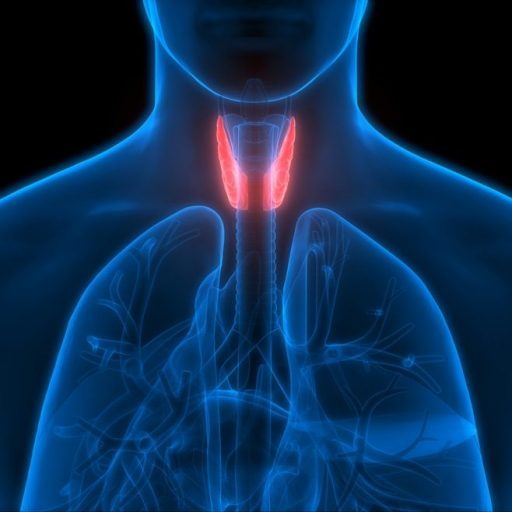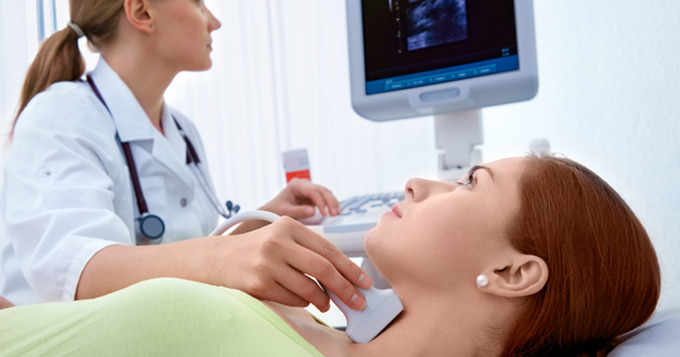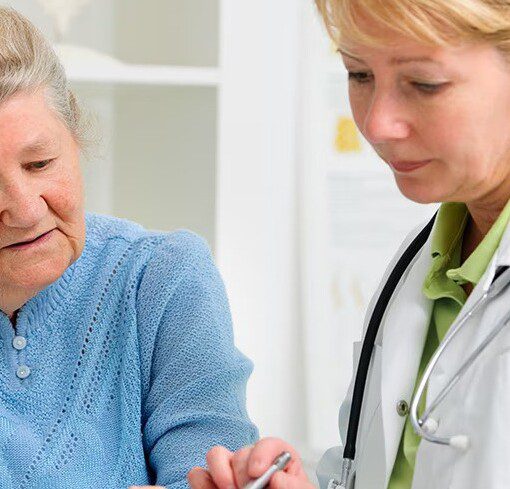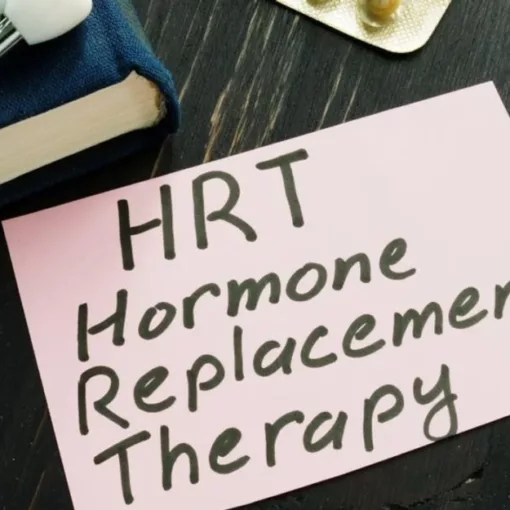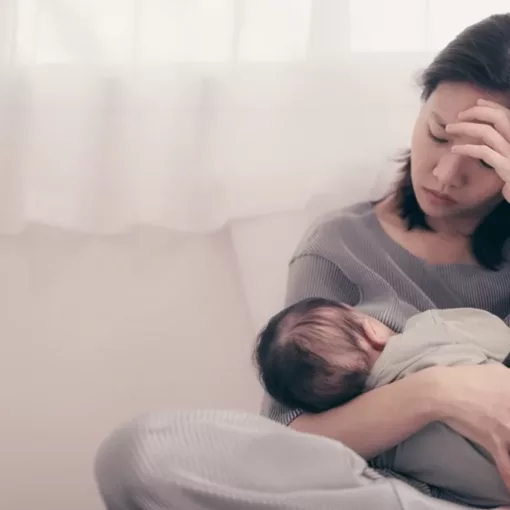Does routine thyroid screening of adults (especially women) fit into a 2020’s model of cost-efficient, quality healthcare? During the last decade, the delivery, quality, and cost of healthcare in America have been controversial subjects of discussion and debate.
While the public, government, medical, and insurance sectors argue over the best ways to provide quality healthcare at a reasonable price for all Americans, most agree that, in general, preventive services offer one of the most effective ways to control costs and provide the best care possible.
One aspect of preventive medicine involves the early identification and treatment of disease by screening selected populations. Screening is performed on apparently healthy individuals who are asymptomatic (do not have or may not recognize that they have symptoms of a disease).
It differs from case finding, which involves examining and testing patients who do describe symptoms they are experiencing. The goal of screening is to distinguish, in a reliable and valid manner, individuals who may have a disease from those who probably do not.
Thyroid Screening Criteria
If screening for thyroid disease is to be valid it should follow generally accepted principles of any good screening program.
The disease should be recognized as a significant health problem.
According to the report prepared by the U. S. Preventive Services Task Force, hypothyroidism and hyperthyroidism “account for considerable morbidity [disease],”affecting 1% to 4% of the adult and adolescent population (approximately 10,000,000 people). Every year 350,000 to 800,000 new cases are reported. Hypothyroidism is more prevalent among women and people with Down’s syndrome.
Thyroid dysfunction impacts various systems. These include the cardiovascular, nervous, and gastrointestinal ones. Consequently, it can change a patient’s health status. Furthermore, their behavior can also be negatively influenced. Thyroid dysfunction can result in infertility, miscarriage, and stillbirth. Deaths from hypothyroidism are uncommon, but can occur among patients who develop myxedema coma – a condition resulting from severe, untreated hypothyroidism.
The natural course of the disease should be well understood.
The signs, symptoms, causes, and course of hypothyroidism are well documented. Signs and symptoms generally appear within a few months of the onset of the disease. However, these signs and symptoms are not specific; that is, they can also be the signs and symptoms of other diseases.
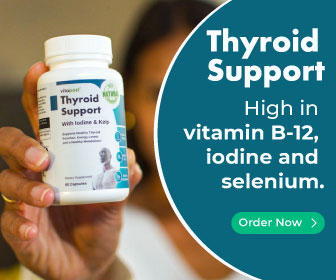 Diagnosing hypothyroidism can be more difficult among certain groups of people, delaying treatment and risking complications.
Diagnosing hypothyroidism can be more difficult among certain groups of people, delaying treatment and risking complications.
For instance, symptoms like fatigue and dry skin are common in hypothyroid patients. They also often experience constipation and poor memory. Yet, these symptoms are frequently mistaken for signs of aging.
In the case of women who’ve recently given birth, 5-10% develop postpartum thyroiditis. Notably, the associated fatigue is often misattributed. People tend to blame it on lifestyle changes or insufficient sleep, which is incorrect.
Moving on to subclinical hypothyroidism, it’s a mild form of thyroid failure. This condition presents with high TSH levels while T4 and T3 hormones remain normal. Intriguingly, patients typically don’t notice any symptoms. More on this can be found in the Spring 1999 edition of The Thyroid Connection.
Approximately 6% to 11% of adult women and 3% of adult men can be classified as subclinically hypothyroid.
According to the U.S. Preventive Services Task Force, 2% of patients with elevated TSH levels will eventually develop overt hypothyroidism. When thyroid antibodies are also present in their blood, the likelihood of developing overt hypo-thyroidism increases—5% to 7% of younger patients and 20% to 24% of older patients within a few years. Research indicates a link between mild thyroid failure and high cholesterol levels. Moreover, this condition could harm heart function. Additionally, it can lead to neuropsychological problems.
The treatment for the disease should be effective and decrease a patient’s suffering.
The treatment of choice for hypothyroidism is levothyroxine, a relatively inexpensive synthetic thyroid hormone. Usually, a daily pill is needed for a patient’s lifetime. After starting this regimen, symptom relief can potentially start within six to twelve weeks. Furthermore, by using appropriate thyroid hormone replacement, proper hormone levels are achievable. Finally, these levels can be stabilized and maintained after three to six months.

There are very few side effects as a result of levothyroxine treatment. Over-administration of the medication can lead to symptoms of hyperthyroidism and could increase the risk of developing osteoporosis. However, this risk can be avoided with regular monitoring of TSH levels.
The screening tests and any follow-up diagnostic test should be valid and reliable.
Measurement of TSH is the single most accurate test of thyroid function. Recently, sensitive TSH assays have shown high accuracy. These laboratory tests excel in their reliability. Moreover, they are less susceptible to interference. Medical conditions often distort results. Similarly, medications can produce false positives. However, these tests tend to remain unaffected. Consequently, they provide more trustworthy results. Follow-up of patients with abnormal TSH findings generally includes physical examination and measurement of thyroid hormones.
We should think about early detection’s cost benefit. This includes the follow-up diagnostic tests and treatment. It’s crucial to consider this in relation to the entire healthcare system.
Dr. Paul Ladenson, a renowned figure from Johns Hopkins, has interesting insights. He co-authored “Screening for Mild Thyroid Failure at the Periodic Health Examination”. This appeared in the July 24/31, 1996 edition of the Journal of the American Medical Association (JAMA).
Dr. Ladenson reveals a stunning fact about US healthcare. He claims “one out of every $7 is spent on healthcare” in the country.
With a renewed interest in holding down medical costs, every dollar spent must be justified.
When determining the benefits of a screening program, it is useful to think of patient benefits in addition to the actual money spent on screening, follow-up tests, and treatment (see Dr. Ladenson’s article The Cost-Effectiveness of Screening for Hypothyroidism on page 5).
 The authors of Screening for Mild Thyroid Failure at the Periodic Health Examination estimated the cost to evaluate symptoms common to thyroid disease (fatigue, cold intolerance, dry skin, constipation, depression, and impaired mental processing) to be $160 per symptom before the results of thyroid testing.
The authors of Screening for Mild Thyroid Failure at the Periodic Health Examination estimated the cost to evaluate symptoms common to thyroid disease (fatigue, cold intolerance, dry skin, constipation, depression, and impaired mental processing) to be $160 per symptom before the results of thyroid testing.
Moreover, the study found a suggestion. It concerned regular checks for mild thyroid failure. The target was the same population. This population comprised adults aged 35 years and older. These checks were to occur every five years. This was identical to the cholesterol screening schedule. The U.S. highly recommends this schedule. Thus, the timing and audience were similar for both screenings.
Preventive Services Task Force, the cost of thyroid cancer screening compared favorably to the cost of other well-recognized screening programs, such as mammograms for breast cancer.
A policy of who to screen and who to treat should be established in advance of initiating a screening policy.
At present, there are no official guidelines for thyroid screening. While some organizations caution physicians to be suspicious of symptoms in certain populations, they stop short of recommending routine screening.
Populations at increased risk for thyroid disease are older adults (especially women), people with Down’s syndrome, and postpartum women. Dr. Ladenson’s article suggests that screening all adults beginning at 35 years of age or older would be reasonable.
After confirming the diagnosis, medical professionals urge treatment for overt hypothyroidism. Every expert values the cost benefits of this intervention. However, treating mild thyroid failure sparks more debate. Professionals don’t universally agree on its treatment. Each case of mild thyroid failure is typically evaluated individually. We don’t apply a one-size-fits-all treatment.
Individuals screened for a disease should receive comprehensive information about it. This knowledge encourages them to attend follow-up examinations.
Screening for hypothyroidism can be the first step in diagnosing hypothyroidism, but it cannot replace the importance of physicians and other healthcare practitioners performing a physical examination that includes a thyroid palpation (evaluation of the size, texture, and tenderness of the thyroid gland by touching and pressing the patient’s throat).

Various professional and lay organizations as well as pharmaceutical companies provide a variety of free thyroid patient education materials. You can obtain these materials by requesting them from these organizations or by visiting several web sites on the Internet.
Brochures are also available in many physicians’ offices and health clinics. Understanding hypothyroidism and the consequences of not treating it is a key factor in following up on further thyroid testing and adhering to the prescribed treatment.
Current Thyroid Screening Policy for Newborns
Screening newborns for congenital hypothyroidism is one form of early detection that is almost universally accepted and, indeed, is mandatory in North America.
On the other hand, no major medical organization currently recommends screening all asymptomatic adults for thyroid dysfunction. In 1994 the U. S. Preventive Services Task Force summed up its reasons for not recommending routine thyroid screening as follows:
- the low prevalence of unsuspected thyroid disease in healthy people
- a lack of evidence that treatment of subclinical thyroid disease results in significant health benefits
- potential adverse effects of treatment
Mild Thyroid Failure
The Journal of the American Medical Association (JAMA) published an influential piece on July 24/31, 1996. Titled “Screening for Mild Thyroid Failure at the Periodic Health Examination”, it sparked a lot of interest. As a result, many healthcare providers started to rethink their policies. Specifically, they focused on the issue discussed in this publication.
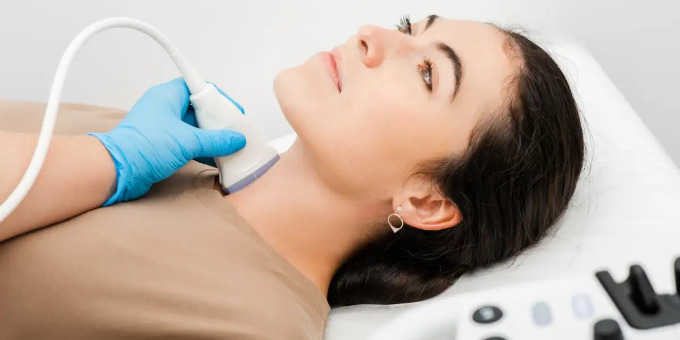
The authors’ study results suggest routine TSH measurements are cost effective. This starts at age 35 to detect mild thyroid failure. Dr. Steven Sherman, Medical Director at The Thyroid Society, often emphasizes this in his talks. He addresses primary care physicians, promoting regular TSH screenings.
In line with the JAMA article’s conclusions, the American Thyroid Association (ATA) is mulling over a similar TSH screening policy. As the medical organization for thyroidologists, this move shows their commitment to the issue.
Given the focus on controlling medical expenses, thyroid screening advocates need to justify the costs. They must also show the significant health benefits of the program. Further investigation may be needed into the effects of early detection and treatment. This is particularly true for subclinical thyroid disease.
Policy makers, insurance providers, and healthcare administrators also need convincing. They need to see the value and benefits of thyroid screening before agreeing to cover its cost.
The public’s awareness of the issue is also growing. As they learn more about the benefits of routine thyroid screening, they will evaluate its cost and benefits. Their decision will determine if this initiative is worthwhile for them.
If public pressure grows in support of routine thyroid screening, it can become a catalyst for change.
Current Thyroid Screening Policies by various Organizations
U. S. Preventive Services Task Force
 “Routine screening for thyroid disease with thyroid function tests is not recommended for asymptomatic children or adults. Currently, we lack enough evidence to suggest screening for thyroid disease. We’re discussing high-risk patients and thyroid function tests. Nonetheless, alternative reasons could justify certain recommendations. Clinicians should remain alert to subtle symptoms and signs of thyroid dysfunction when examining such patients.”
“Routine screening for thyroid disease with thyroid function tests is not recommended for asymptomatic children or adults. Currently, we lack enough evidence to suggest screening for thyroid disease. We’re discussing high-risk patients and thyroid function tests. Nonetheless, alternative reasons could justify certain recommendations. Clinicians should remain alert to subtle symptoms and signs of thyroid dysfunction when examining such patients.”
American Thyroid Association
“… Thyroid function tests aren’t necessary for patients without suspected thyroid disease. However, some high-risk groups are exceptions. These include newborns, for whom screening for congenital hypothyroidism is mandatory. Also, individuals with a strong family history of thyroid disease are at risk. The elderly are another high-risk group. Moreover, women 4 to 8 weeks postpartum should also be screened. Lastly, patients with autoimmune diseases are of concern. This includes diseases like Addison’s disease and type I diabetes mellitus.” This policy is under currently under review.
American Association of Clinical Endocrinologists
AACE does not have a policy regarding screening for thyroid disease. Guidelines for the evaluation and treatment of hyper- and hypo-thyroidism can be found at their website.
American Academy of Family Physicians
With the exception of newborns, the Academy does not recommend TSH screening for thyroid disease in patients less than 60 years old. However, they are in the process of reveiwing their current statement.
American College of Physicians
“Women over 50 years of age are at special risk for thyroid disease and should undergo periodic TSH screening.”
American College of Obstetricians and Gynecologists
“…recommends screening annually, or as appropriate, for women age 19 and older who are high risk. High-risk is defined as “strong history of thyroid disease; autoimmune disease (evidence of subclinical hypothyroidism may be related to unfavorable lipid profiles).”
